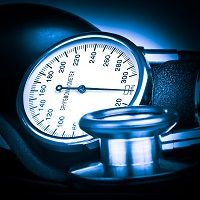Article
Good Phase 3 Results on Empaglifloxin in Diabetics' Blood Pressure
Author(s):
Phase 3 trials showed that empaglifloxin (Jardiance/Boehringer Ingelheim and Lilly) can reduce blood pressure in type 2 patients.

For the almost 28 million people in the US with type 2 diabetes mellitus (T2DM), high blood pressure is a major risk factor for cardiovascular disease, which is a frequent cause of diabetes-related deaths.
Phase 3 trials showed that empaglifloxin (Jardiance/Boehringer Ingelheim and Lilly) can reduce blood pressure in type 2 patients. A study published last month reported that added benefits also can occur for type 2 patients already taking anti-hypertensives.
“Empagliflozin reduced BP [blood pressure] in patients with T2DM and hypertension, irrespective of the number and type of background hypertensive medication. Although empagliflozin is currently indicated for blood glucose lowering, it may provide additional benefits for BP control alone or when combined with antihypertensive therapy,” Giuseppe Mancia MD, PhD of the University of Milan and his co-authors wrote.
The authors said that daily 10 or 25 mg doses of empagliflozin over a 12-week period significantly reduced mean 24-hour systolic and diastolic blood pressure for sample patients taking no anti-hypertensives, or one or two or more. These anti-hypertensive medications included ACE inhibitors, ARBs and diuretics. Therefore, empagliflozin may provide “a complementary mechanism of action to those affected by commonly used anti-hypertensive medications,” the authors added.
Empagliflozin is a selective sodium glucose transporter 2 inhibitor which reduces plasma glucose by increasing its excretion in urine.
“The mechanism behind the reductions in BP observed with empagliflozin have not been fully elucidated, but although glucose lowering with empagliflozin is dependent on renal function, the effects of empagliflozin on BP appeared to be preserved with decreasing renal function in this trial, suggesting that BP modulation may involve pathways other than urinary glucose excretion, such as weight loss, osmotic diuresis, and reduced arterial stiffness,” the authors explained.
Empagliflozin’s role in lowering BP may have contributed to the 38% relative risk reduction in type 2 patient deaths from cardiovascular disease found in an earlier study that did not specifically look at the combination with anti-hypertensives, Mancia and his co-authors added.
When compared to the placebo group, sample patients taking no anti-hypertensives and 10 mg of empagliflozin experienced a reduction in mean 24-hour systolic blood pressure of -3.89 mm HG and -2.58mm HG of diastolic blood pressure. For the 25 mg dose, the reductions were -3.77 and -2.45.
In this study, those taking one antihypertensive and 10 mg of empagliflozin showed a mean -4.74 mm HG mean reduction for systolic blood pressure and -1.97 mm HG for diastolic blood pressure when compared to the placebo group. The 25 mg dose resulted in drops of -4.27 and -1.81.
Adding 10 mg empagliflozin to two or more anti-hypertensives produced meant reductions of -2.36 mm HG for systolic blood pressure and -0.68 for diastolic when compared to the placebo group. The 25 mg dose resulted in declines of -4.17 and -1.54.
Five of the study’s eight co-authors are Boehringer Ingelheim employees. However, Mancia, the lead author, as well as two others are not. In the last two years Mancia, according to the disclosure, has accepted speaking or consultation fees from a number of pharmaceutical companies including Boehringer Ingelheim.
The study was published in the October 2016 issue of HypertensionAHA.
Related Coverage:





